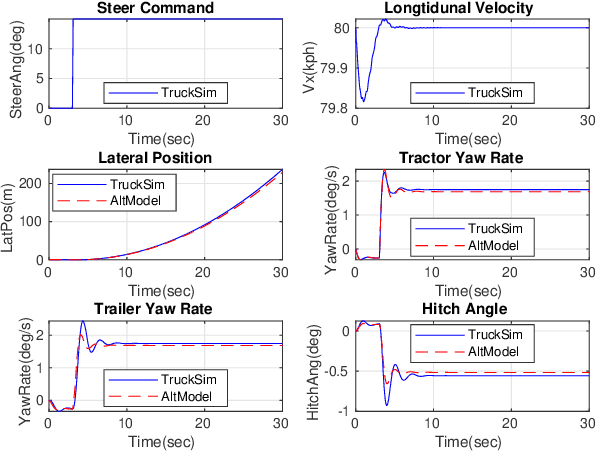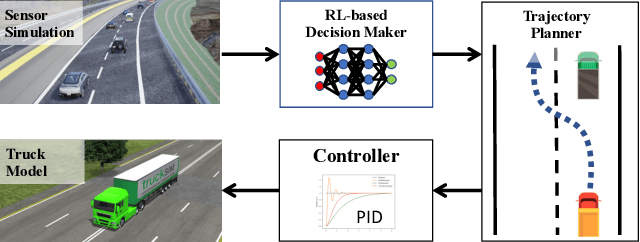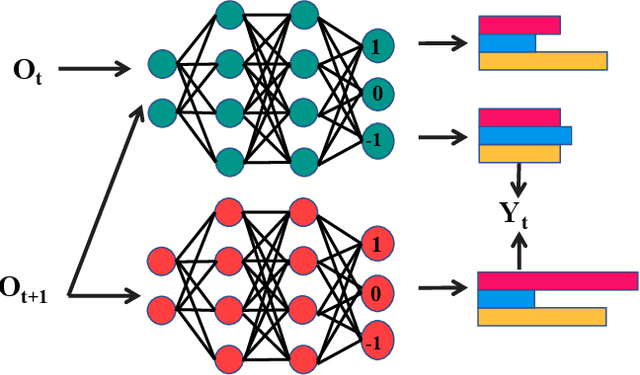Ziquan Lan
An Intelligent Self-driving Truck System For Highway Transportation
Dec 31, 2021



Abstract:Recently, there have been many advances in autonomous driving society, attracting a lot of attention from academia and industry. However, existing works mainly focus on cars, extra development is still required for self-driving truck algorithms and models. In this paper, we introduce an intelligent self-driving truck system. Our presented system consists of three main components, 1) a realistic traffic simulation module for generating realistic traffic flow in testing scenarios, 2) a high-fidelity truck model which is designed and evaluated for mimicking real truck response in real-world deployment, 3) an intelligent planning module with learning-based decision making algorithm and multi-mode trajectory planner, taking into account the truck's constraints, road slope changes, and the surrounding traffic flow. We provide quantitative evaluations for each component individually to demonstrate the fidelity and performance of each part. We also deploy our proposed system on a real truck and conduct real world experiments which shows our system's capacity of mitigating sim-to-real gap. Our code is available at https://github.com/InceptioResearch/IITS
Robust Point Cloud Based Reconstruction of Large-Scale Outdoor Scenes
May 23, 2019



Abstract:Outlier feature matches and loop-closures that survived front-end data association can lead to catastrophic failures in the back-end optimization of large-scale point cloud based 3D reconstruction. To alleviate this problem, we propose a probabilistic approach for robust back-end optimization in the presence of outliers. More specifically, we model the problem as a Bayesian network and solve it using the Expectation-Maximization algorithm. Our approach leverages on a long-tail Cauchy distribution to suppress outlier feature matches in the odometry constraints, and a Cauchy-Uniform mixture model with a set of binary latent variables to simultaneously suppress outlier loop-closure constraints and outlier feature matches in the inlier loop-closure constraints. Furthermore, we show that by using a Gaussian-Uniform mixture model, our approach degenerates to the formulation of a state-of-the-art approach for robust indoor reconstruction. Experimental results demonstrate that our approach has comparable performance with the state-of-the-art on a benchmark indoor dataset, and outperforms it on a large-scale outdoor dataset. Our source code can be found on the project website.
 Add to Chrome
Add to Chrome Add to Firefox
Add to Firefox Add to Edge
Add to Edge